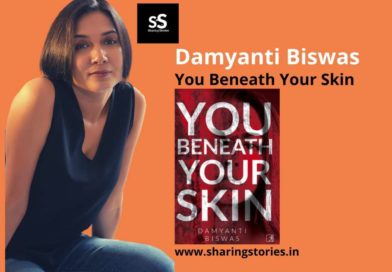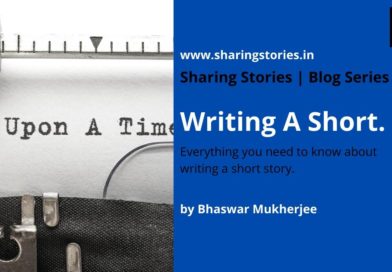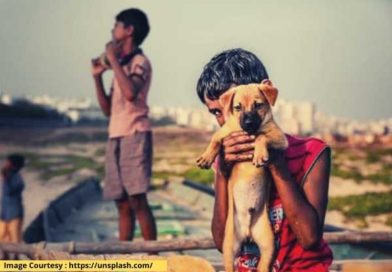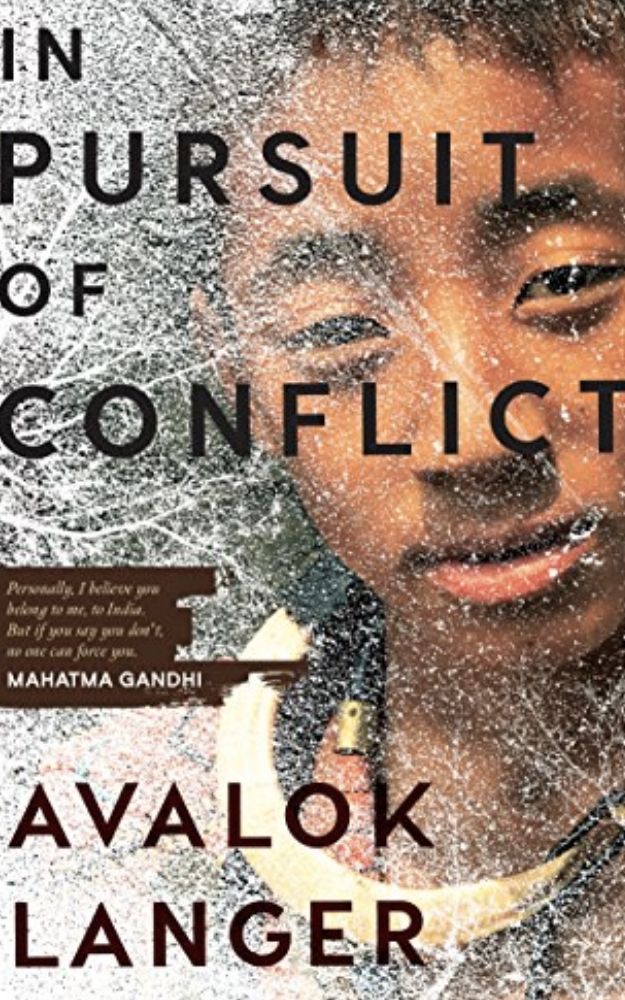In Conversation with Author Avalok Langer
Avalok Langer in Conversation
Book Title : “In Pursuit of Conflict”
Avalok, your journey from a conflict journalist to an author seems to be quite intriguing. Could you please shed some light on how your career as a writer took shape?
To be honest, I had no intention of writing a book or being a writer. I greatly disliked reading, I still do, and I mostly wrote gibberish, again, I still do.
Being dysgraphic and dyslexic ensured that for me writing was painful; often something I shied away from. What I thought or spoke seldom matched what I would scribble on a piece of paper in horrible handwriting. For most of my life, the written word has been my enemy and even today, though it has become better, reading and writing are a challenge which require great will power and effort, be it reading a book or for even typing out this interview.
So becoming a writer was never an aspiration or a conscious choice, it was the result of bad financial planning and the lack of choice.
Being an army kid, I grew up around war, at least the machines, men and systems used for it. As a result, from an early age, I was obsessed. However, when joining the army wasn’t an option, my father, the General, flat-out refused, I found myself in awe of conflict journalists on TV, bulletins wheezing past them as they reported live from the frontline line. That’s what I wanted to be and so I joined NDTV hoping to cover conflict and war.
However, little did I know there was a long line to the frontline and instead spending my time dodging bullets, I spent close to two years putting on weight as I anchored and produced food and talk shows.
To fast track my conflict dreams, I quit my job and used my savings and a small soft loan from my parents to travel along the western border from Gujarat to Jammu and then on to the North-eastern states of the country to better understand the on-ground realities of conflict outside the military bubble I’d grown up in and build a network.
After spending 10 months researching and travelling, before I could reach the ‘red corridor’, I ran out of money and needed a job. That led to me joining Tehelka Magazine, shifting from TV to print and becoming a ‘writer’.
After that, it was all luck.
A former colleague from NDTV who was then working with a publishing house reached out to me for a small piece on being a writer with a learning disability for another book she was working on. A few years later, the editor of that book reached out to me and seeded the idea of writing a book that she would publish, but that didn’t work out. However, she took the book brief and introduced me to a literary agent, who signed me, got me a publisher, all before I’d written the book.
I have now gone back to video, but those years at Tehelka not only gave me crucial experiences in the field that developed my though and professional ability, but the rigour of writing and being critiqued on a weekly bases, having your pieces ripped apart and restructured and then being published, gave me the confidence to just say “fuck it’, and see myself as someone who can write.
I still wouldn’t say I’m a writer though. At least, not yet.
You have chosen to write about the North Eastern region of India in your book ‘In Pursuit of Conflict’. Was there any incidence which compelled your thoughts to come up with this book? Can you share a few lines from your book and maybe give a bit of background?
As I said, there was never a desire to write a book and the choice to report on the North- eastern states, was a financial miscalculation. In 2010, the conflict to cover was the ‘Naxal’ movement, but I ran out of money before I reached there. Having said that, my months in the eastern states – Nagaland, Assam, Meghalaya, Arunachal and later Manipur and Tripura, exposed me to a world I didn’t know. I was constantly forced to question my preconceived idea of what is India, right and wrong, who is the enemy as well as my reality and my bubble. We grow up totally unaware and isolated from the history, conflict, culture, beauty of the diverse communities that call these eastern states home.
The book is a reflection of that journey, of the gradual process of unlearning and relearning. Of balancing a deteriorating relationship with my then Naga girlfriend, a father who was a serving General and going to armed camps and meeting leaders of different movements who were fighting for their right to self-determination.
Excerpt from In Pursuit Of Conflict :
As instructed, I took a left from the church. Puddles, reflecting the bright blue sky littered with clouds lined the path, but the beauty of the moment was lost on me. I was nervous. My safe haven, a sliver Maruti Omni that had brought me to Mokokchung Village in central Nagaland, had abandoned me and with every step I felt more alone.
I stood outside the blue door waiting for my audience with the General Phunthing Shimray, now the commander and chief of the Northeast’s most prominent underground group NSCN (IM). Placing my camera on the wooden stool, I unlaced my black military boots. My trembling fingers ran across the military dependent card I had carefully tucked into my sock, reminding me of who I was, a journalist shaking hands with an underground leader in the heart of an armed camp, but a journalist who was the son of a serving Indian army general.
In that moment, nervous and guarded, I was still to realize that my dual identity, though mutually exclusive yet inseparable, would define my Northeast experience. Born into a military family, my idea of India was what I saw on the map. As a kid, I stood at attention, saluting the TV screen every Republic Day as the national anthem played. I always understood why the army fought, why they were willing to die and I believed and continue to believe in an idea of India. But sitting in the small meeting room cramped with sofas, the sounds of a murmuring TV infiltrated the thin thatched walls as I sipped red tea, I remained oblivious of the fact that over the next few hours, the smiling militant leader who warmly welcomed me into his temporary residence would force me to question the many truths of my childhood.
‘Where do you come from?’ the General asked. In a strange attempt to be honest yet cover up my military background, my answer described my pre Partition roots. I took him through my family history, how I was part Kashmiri, an idea that he liked – another struggling people, and how my other three grandparents were from what is now Pakistan – Lahore, Abbottabad and Dera Ismail Khan. He smiled and said, ‘That’s why we fight,’ pausing briefly. Unsure, I began to speak, but he continued, ‘You are a man without a home, your ancestors didn’t fight for their homes and today you are a man without his land. We Nagas don’t want that, we don’t want to lose our land. So we fight.’ My enemy’s logic rendered me speechless.
You have spent your childhood in Army background and during your career as a conflict journalist you must have seen things from a close quarter. How did this help you in understanding the topic of your book, ‘In Pursuit Of Conflict’?
Born into a military family, I was obsessed with conflict from an early age. I wanted to wear the uniform, take the oath and defend my country and like so many other kids, I’d imagined various scenarios where I single handedly saved the nation. Imagination would merge with others realities when I’d sit soldiers and officers and hear their war stories, stories of bravery, of killing the enemy, of being shot and surviving, of medals, memory loss and what I’d later come to understand as PTSD.
I think understanding why the Army does what it does, why they fight greatly helped me in developing an understanding of conflict from the States point of view. Also, having access to my father who had served in conflict zones both in India and abroad with the UN, helped me gain a long term perspective and see the larger pattern.
However, once I hit the ground and met the people fighting the state as well as those trapped in the conflict, I was forced to reassess many of the truths I knew. Conflicts aren’t black and white, there is no absolute truth, no absolute right and wrong, historical moments are and can be interpreted differently to justify whichever side you are on. My journey is a cycle of constant unlearning and relearning – I grew up idolizing the army only to learn that they all aren’t the heroes I believed they were, I was naive and romanticized the armed leaders I met and their struggles only to learn at a later stage of the corruption and parallel economies they ran – the ‘truth’ seems to be that those in power don’t want the conflict to end.
However, the only thing that remained constant, be it the eastern states or what I came across in Kashmir years later, was that everyday people are stuck in the middle. As conflicts play out and games are played between those in power, the aspiration of people is curtailed, their rights are infringed upon by all the stakeholders and our silence and inability to bring about meaningful dialogue and change fails them.
Who is the favourite character from your book and why?
I don’t really have a favourite character, but my favourite chapter is the one where I sneak into Myanmar without any documents with a diamond smuggler for a guide to meet the Manipuri ‘underground’ and it all goes wrong. It has to be the scariest 24 hours in my life.
Rapid Fire.
1. Favorite Place, Person, Food, beverage….
Shillong, Noor (Our Son), Naga pork cooked with fermented bamboo shoot (though now I’m mostly vegetarian and it’s very boring), Vietnamese Coffee
2. Your other Talents….
Basketball and photography
3. Your First Love….
Sports
4. Favorite Quote…..
“In the middle of difficulty lies opportunity”
What if Round.
1. What if you had to live with only three things all your life, what would the three things be?
If it is things, objects, so my phone, which is currently an extension of me, my camera and my new basketball shoes.
2. What if you were given the power to change one thing from this world, what would you change?
Income inequality.
3. What if you had all the money in this world, what would you do first?
Quit my day job.
Many of your readers might not know about a part of your personality. You suffered from the learning disability of Dyslexia. How did you overcome this challenge in your writing journey and as an author what message you would want to give to the writers who are suffering or facing some kind of physical or mental challenge?
I have not overcome it as such, I’ve learnt to work around it and be less apologetic. Also, I wouldn’t want to talk about disability as a whole, I haven’t experienced it, so I’ll stick to my learning disability – dysgraphia and dyslexia.
So there’s a spectrum of severity and I’m on the lower end, so in that sense it has been easier for me than it would be for someone else.
I really don’t like reading, I see people all around me, my wife, parents, sister, they lose themselves in books and it’s a way to relax and unwind, for me it is work. Reading books stresses me out because I need to read and reread and then reread again.
Unfortunately as a journalist, you have to constantly read, and it is painful but it’s something you have to do there no work around.
However, a large part of what I tried to do to combat or rather supplement this is to reach out to experts for interviews. So instead of just reading about the Naga armed struggle, I went and met the leaders who founded it and heard from them the stories of their history. There are pros to this, you don’t have to read that much, you can ask follow up questions, you get to meet the person and build a human connection, but there are also cons, it takes longer, it’s expensive and it takes you time to develop perspective.
Technology has helped a lot. Spell check, grammar check, and video platforms.
I am constantly watching videos – explainers, interviews, podcasts, talks – I’m constantly consuming information online as means to learn. But eventually you have to have read the document because that is the source, the rest is interpretation.
As for writing, I’ve found three things very helpful. First is a mind map or a structure of through. Often, I’d structure a chapter with bullet points of how I want the story to flow, with sub points within each head and then write the meat in between. Second, I personalise it. I write it as I see it or feel it, as it is easier for me to articulate my thoughts in a first person account as I would in a conversation. Lastly, I get someone to read everything I write, from important emails, to social media posts to this interview. It has to be checked by someone I trust, because I don’t trust myself.
According to you, which are the 5 books everyone should read and also who are your top three Authors and what impact they had in your journey as a writer?
Books –
The Prince by Niccolo Machiavelli
Animal Farm by George Orwell
Open by Andre Agassi
Red Sun Sudeep Chakravati
Everybody Loves a Good Drought by P Sainath
Authors:
Robert Lipsyte – first book I read and his writing style greatly influenced mine.
Bertil Lintner / B.G. Verghese – They explored the Northeastern state decades before me and their books became the foundation of my work.
Could you share a few tips for Young Authors?
Go out and experience what makes you uncomfortable. It is in the unknown where you will find the story you need to tell and even if you don’t, the adventure will be worth it.
At Sharing Stories, we have an ongoing campaign ‘World Harmony through Writing’ where we encourage writers to pen down their deepest internal thoughts, daily for at least fifteen minutes. Their new ideas and profound thinking shall help to bring out some positive changes in the world we live in. We would love to hear you thoughts about this initiative.
I think it’s very important for us to communicate and listen to each other’s thoughts and points of view. I feel with algorithms and social media, we’re getting stuck in echo chambers where our point of view is the only right one worth listening to and it is your facts vs. mine, your truth vs. mine, I am an idiot to you and you are an idiot to me, and the space for us to discuss opposing view is diminishing. We need to find a way to listen to the other and educate each other and I hope from this churn will emerge ideas that are diverse and force dialogue and thought.
Other Authors | Sharing Stories

Damyanti Biswas
Avalok Langer in Conversation Book Title : “In Pursuit of Conflict” BUY NOW!!! Avalok, your journey from a conflict journalist

Writing a Short | Everything you need to know about Short Story writing.
Writing a Short (Part I) First the premise. For it’s a minefield out there. The world of writing fiction is

Picture Impact Challenge June Entries
Picture Impact Challenge June Entries Winning Entry by Santosh bakaya The visible joys of the invisible chunks I sat in

